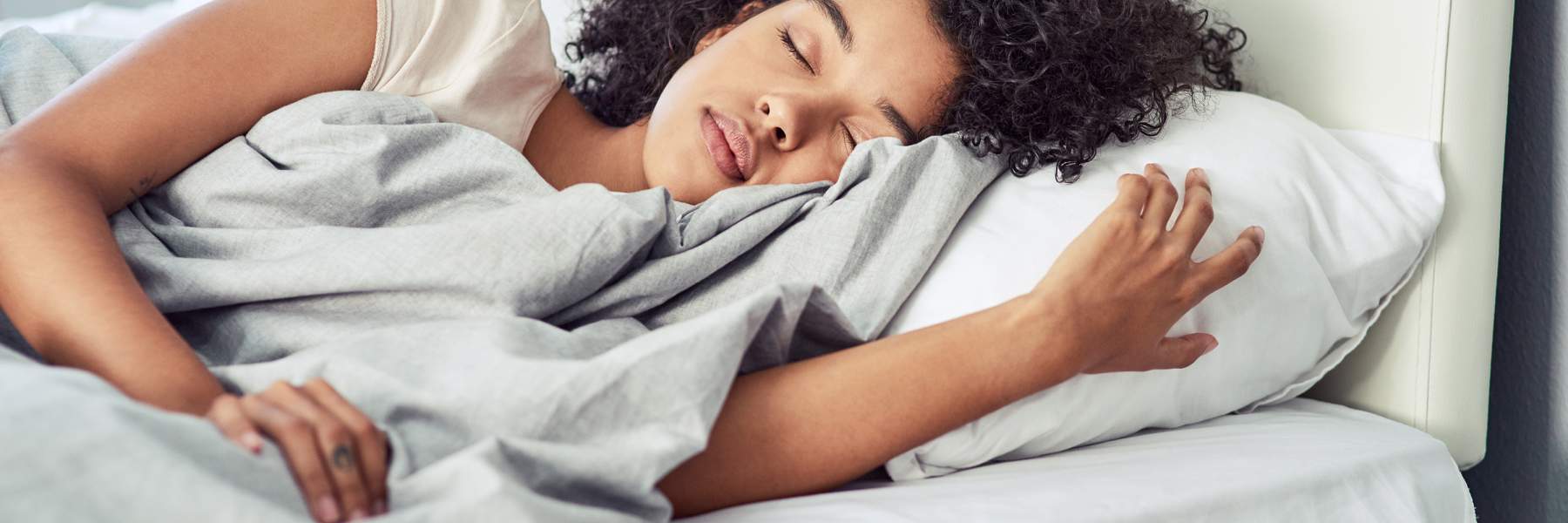Sleeping difficulties are commonly associated with endometriosis.
Sleeping difficulties are commonly associated with endometriosis and may be linked to fluctuations in hormones, the experience of bodily or pelvic pain, anxiousness, or low mood. People living with endometriosis are more likely to experience difficulty falling and staying asleep, and daytime drowsiness and fatigue, than those who do not have endometriosis.
Understanding the link between endometriosis and sleep quality is important because sleepiness and fatigue can result in difficulty managing your daytime activities. Fatigue is described as feeling mentally and/or physically drained. Sleepiness, on the other hand, relates to any difficulties that you may have staying alert or awake.

Pain and sleep disturbance
The link between pain, sleep disturbance, and poor sleep quality is well known. We also know that when your sleep is disrupted frequently, this may result in changes to your immune system function and can stimulate or increase your pain levels. This often leads to a vicious cycle, with endometriosis-related pain disrupting your sleep cycle, which results in increased inflammation, resulting in more pain. Although endometriosis treatment often focuses on addressing the more commonly discussed symptoms of endometriosis (e.g. heavy periods, persistent pain), addressing poor sleep quality is very important to your overall physical and emotional wellbeing and quality of life.
Sleep disturbance and your emotions
Poor sleep quality can cause changes in your emotional wellbeing and lead to irritability, lowered motivation, difficulty concentrating and attending to information, and a decreased interest in doing things that you would normally enjoy doing. Other mood symptoms can include feelings of sadness or hopelessness and increased crying. As well as the negative pain-sleep disturbance cycle described previously, poor sleep quality can also result in, or increase, feelings of anxiousness or depression. You may not yet have had an opportunity to discuss your sleep cycle with your care providers, but this is an important area to discuss.
Can I change my sleep quality without medication?
The short answer is yes! One of the key areas that you can monitor, and make changes to if needed, is your sleep routine or sleep hygiene. Sleep hygiene is the term that is used to describe good sleeping habits or behaviours. Reviewing and modifying your sleep hygiene can address some of your sleeping difficulties. Good sleeping habits include having a regular night time routine, avoiding checking clocks during the night, and minimising long daytime sleeps.

What can I do to improve my sleep?
The Centre for Clinical Interventions, based in Western Australia, has some excellent evidence-based resources that you can access to assist with monitoring and improving your sleep. It includes things like:
- Get into a rhythm - try to go to bed and wake up at the same time each day
- Indulge in a night-time bath (1-2 hours before going to sleep)
- Avoid caffeine or nicotine (4-6 hours before bed)
- Setup the environment - use block out curtains, ear plugs, blankets or fan to setup the perfect sleep environment
- Track your sleep - you can use a diary or app to track your sleep
 Skip to main content
Skip to main content